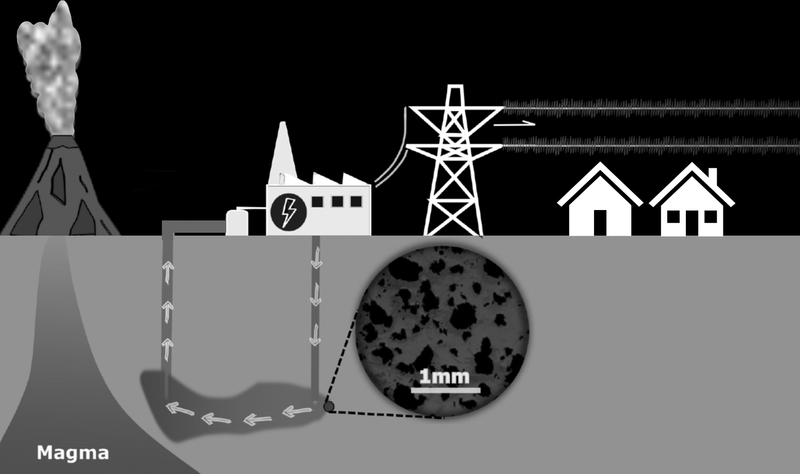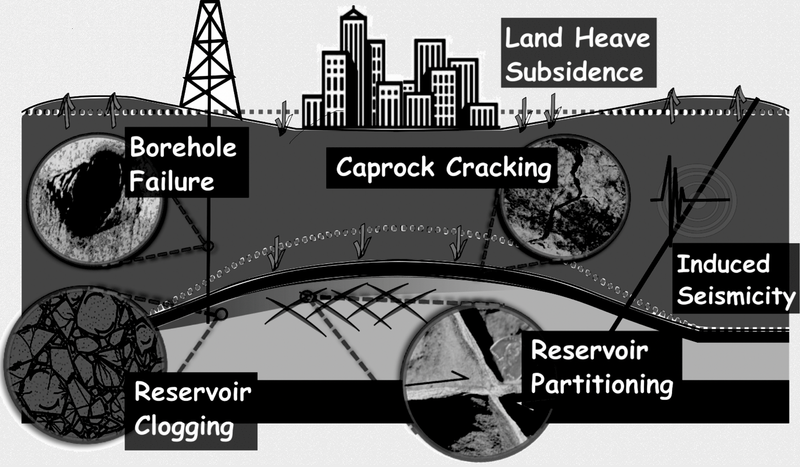Projects

Multiscale and Multiphysics Characterization of Volcanic Rocks
Geothermal energy harvesting has gained renewed momentum in recent years following the discovery of high-temperature resources exceeding 400°C in volcanic systems. This emerging industry has highlighted our limited understanding of these types of rocks, particularly in our ability to predict their deformation behaviors under the complex thermo-hydro-chemo-mechanical conditions relevant to geothermal reservoirs. This project is designed to address this critical knowledge gap. We employ advanced geomechanics testing methods and modeling frameworks to develop novel insights and predictive capabilities for volcanic rocks that support the safe and efficient exploitation of underground geothermal resources. This project aligns with several United Nations Sustainable Development Goals, including Affordable and Clean Energy, Climate Action, Sustainable Cities, and Responsible Production and Consumption. It is funded by the Swiss National Science Foundation through an Ambizione Fellowship awarded to Ghassan Shahin. The project fosters collaborations between EPFL, the Johns Hopkins University, and the University of Strasbourg, leveraging expertise in geomechanics, geosciences, and volcanology.

EPFLRock4CCS: Quantifying chEmo-hydromechanical Properties and FaiLure mechanics of reservoir ROCKs for Carbon Capture and Sequestration
The geological sequestration of CO2 entails the injection of high-pressure fluids deep into subsurface porous reservoirs. Such procedures can induce significant stress and chemical disturbances, potentially leading to irreversible deformations within and surrounding the injection sites. Here, via a laboratory pilot study, mimicking injection into a reservoir on a miniature scale, we will characterize, through a multi-scale approach, the effect of pressurized water and weak acids on the deformation behavior of porous rocks. This project supports a range of the United Nations Sustainable Development Goals, specifically Affordable and Clean Energy, Climate Action, Sustainable Cities, and Responsible Production and Consumption. This project is funded by the European Union’s Horizon 2020 research and innovation programme under the Marie Skłodowska-Curie Fellowship and the Swiss Federal Office of Energy. The project bridges collaborations between EPFL and Ecole Normale Superieure-Paris, Ecole des Ponts, and the Johns Hopkins University bringing together expertise in geomechanics, geosciences, and geotechnology.